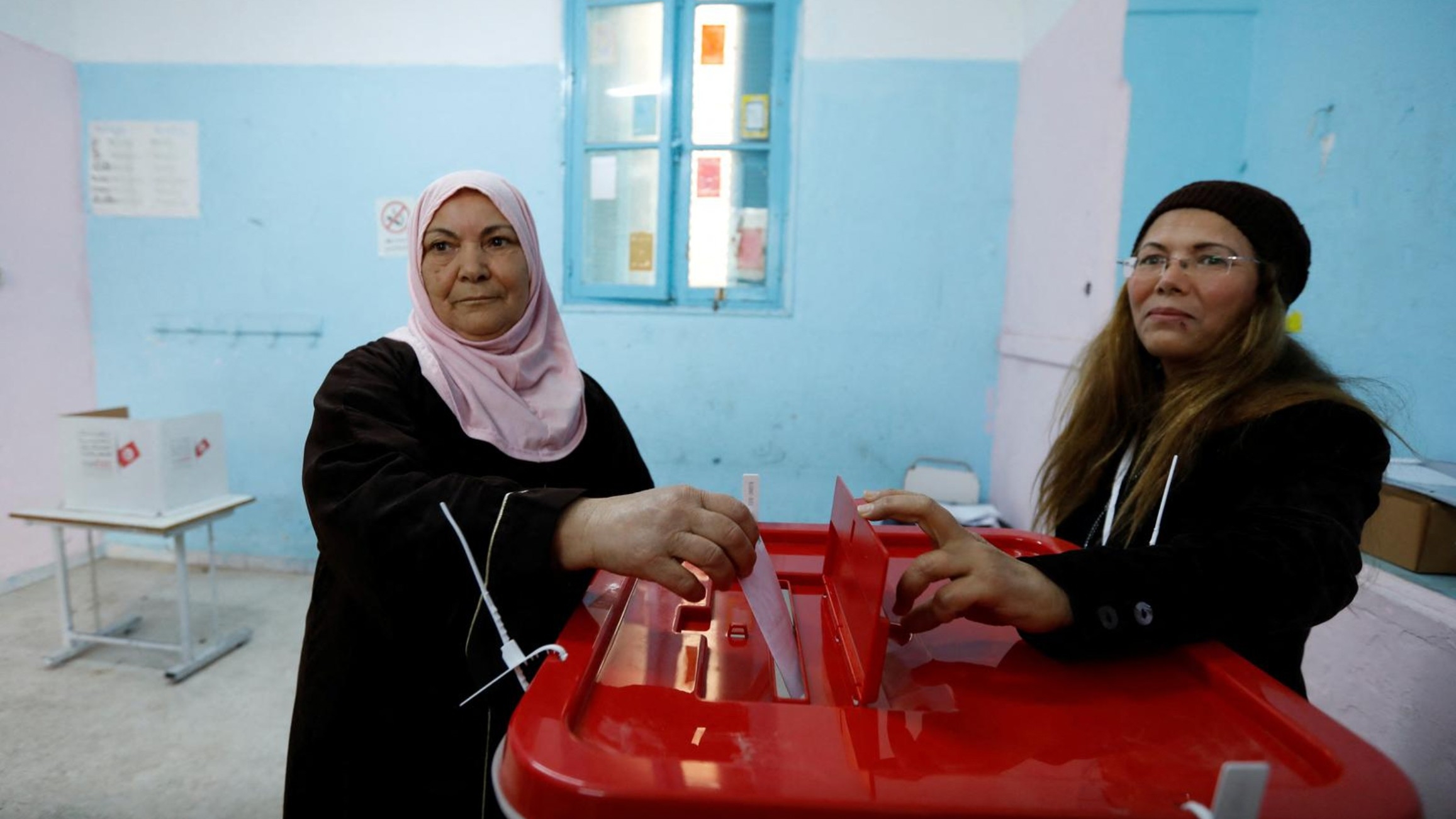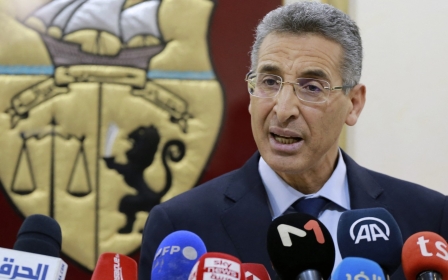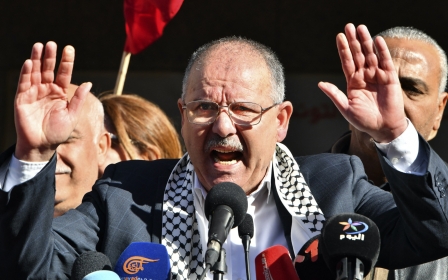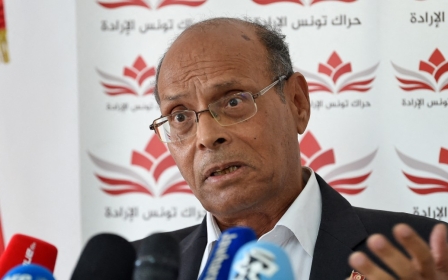Tunisians head to the polls as opposition urges boycott

Tunisians headed to the polls on Saturday in a vote that observers have warned could rubber-stamp President Kais Saied's grip on power.
Some nine million Tunisians are registered to vote. However, in a sign that there is little enthusiasm for the elections, the country's electoral authority struggled to find enough parliamentary candidates earlier this year.
Polls opened at 8 am in the country, however, by midday local time, turnout stood at less than 5 percent.
New MEE newsletter: Jerusalem Dispatch
Sign up to get the latest insights and analysis on Israel-Palestine, alongside Turkey Unpacked and other MEE newsletters
In the end, just over 1,050 parliamentary candidates were accepted, 122 of whom are women, representing 161 constituencies and competing for the 161-seat assembly.
In contrast, the 2019 elections had more than 15,000 parliamentary candidates.
The previous electoral list system required gender parity and youth representation, which have now largely been done away with.
'These legislative elections will serve primarily as a tool for President Kais Saied to legitimise his grip on power'
- Hamish Kinnear, Middle East and North Africa analyst
Some constituencies have only one candidate, who will automatically be declared the winner.
There are also concerns that the low number of female candidates could lead to a parliamentary body that will be dominated by men.
"These legislative elections will serve primarily as a tool for President Kais Saied to legitimise his grip on power," Hamish Kinnear, a Middle East and North Africa analyst at risk intelligence company Verisk Maplecroft, told Middle East Eye.
"The recently revamped constitution ensures that the incoming parliament will be largely toothless, while opposition boycotts and electoral meddling are likely to create a chamber that is stacked with pro-Saied loyalists."
Saied seized power last year in what opponents have labelled a coup, leaving proponents of democracy in the country with few options.
Major opposition parties like Ennahda have called for a boycott of the elections. However, the new parliament's make-up will likely see Saied able to reshape the country in his vision.
On Saturday, Saied told voters that the country was "breaking with those who destroyed the country".
"Those who are elected today should remember that they are being watched by their voters, and that if they're not up to the job their mandate will be taken away," he said in front of a polling station in Tunis.
Earlier this month, the head of Tunisia's powerful labour union, with more than one million members, joined a long list of groups speaking out against the country's direction of travel.
"We no longer accept the current path because of its ambiguity and individual rule, and the unpleasant surprises it hides for the fate of the country and democracy," UGTT's leader Noureddine Taboubi said in a speech to thousands of supporters.
The UGTT has until recently largely avoided directly opposing Saied.
Neutered opposition
The current elections were triggered by a constitution change in July 2022, passed in a referendum in which only 30 percent of registered voters participated.
Kinnear said that, while the electoral process maintains the "facade" of the mixed presidential-parliamentary system enshrined in the 2014 constitution, "it now gives the president clear supremacy over other branches of government".
"The president, for example, is solely responsible for the appointment of the prime minister and can introduce his own bills, which take precedence over those introduced by parliament."
One of the changes Saied has introduced is that the role of organised parties has been significantly reduced.
Political parties also can no longer run campaigns or fund candidates, and all candidates must run as individuals and fund their own campaigns, leaving the door open to richer candidates potentially buying their way into office.
The elections will, however, "ease Tunisia's relations with key external partners by closing out 17 months of constitutional and governance uncertainty", said Kinnear.
"Securing financial assistance from donors unsettled by the tumult that has recently characterised Tunisian politics will be easier now that greater political predictability is returning, even if the democratic legitimacy of the referendum and upcoming legislative elections is weak."
Middle East Eye delivers independent and unrivalled coverage and analysis of the Middle East, North Africa and beyond. To learn more about republishing this content and the associated fees, please fill out this form. More about MEE can be found here.




